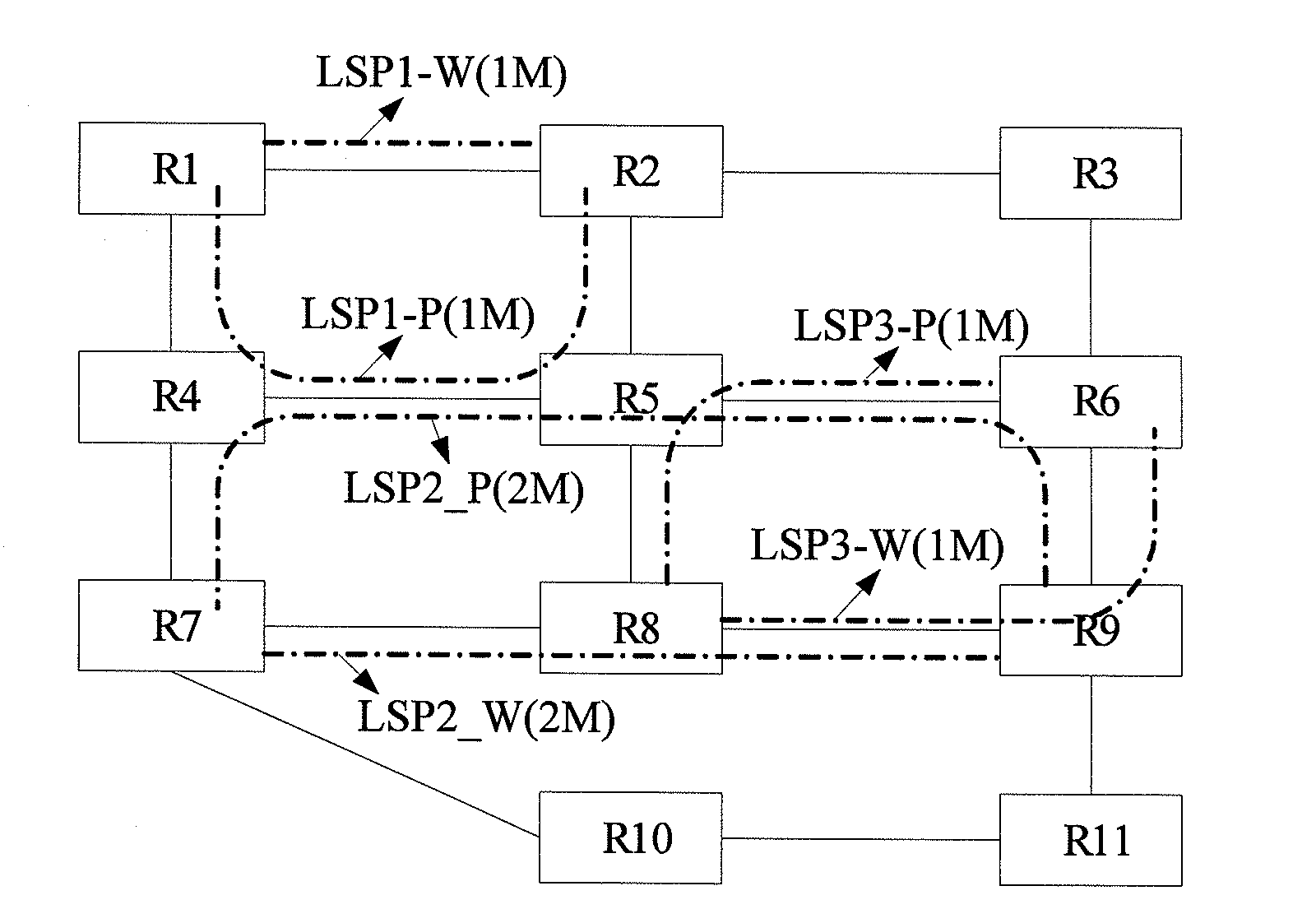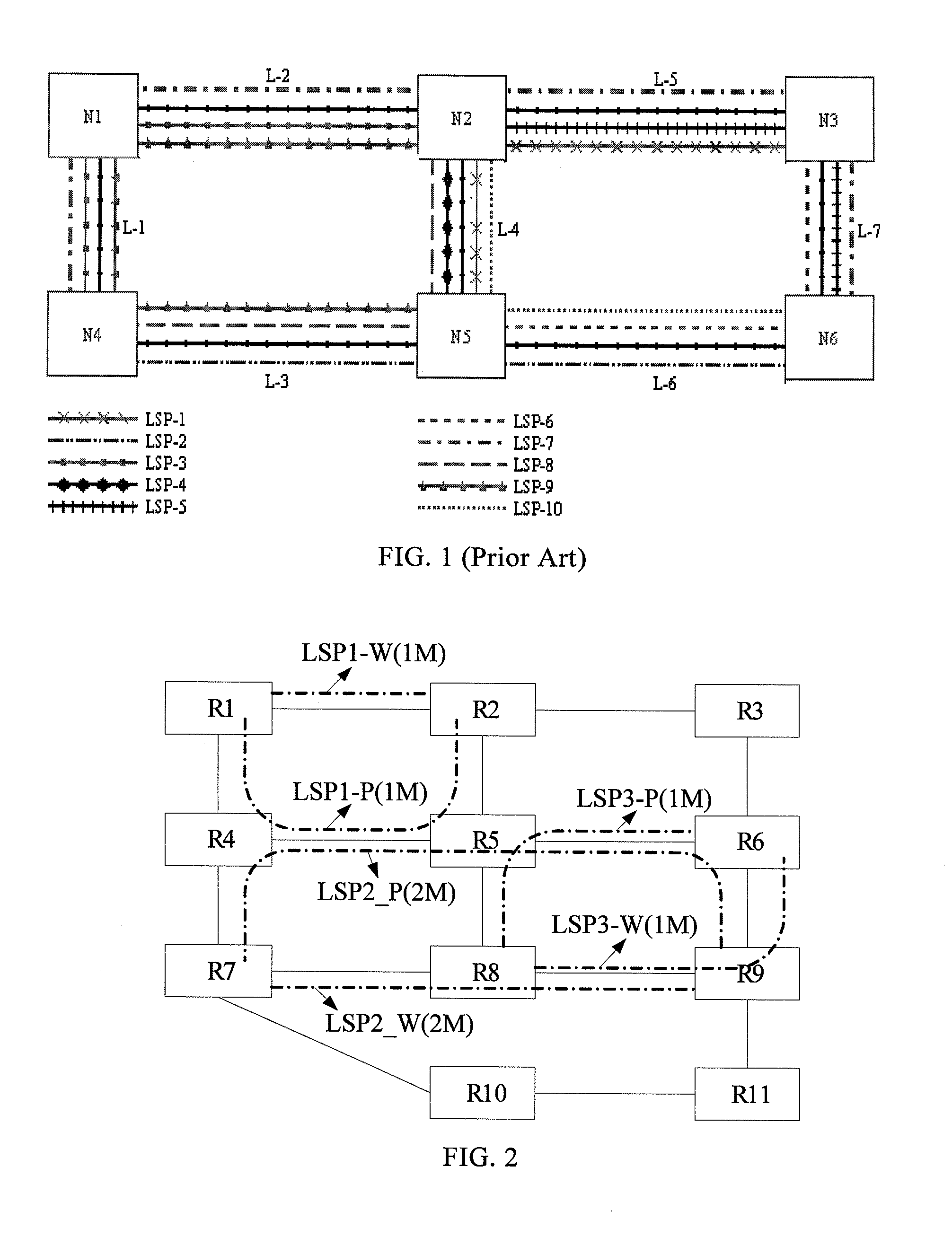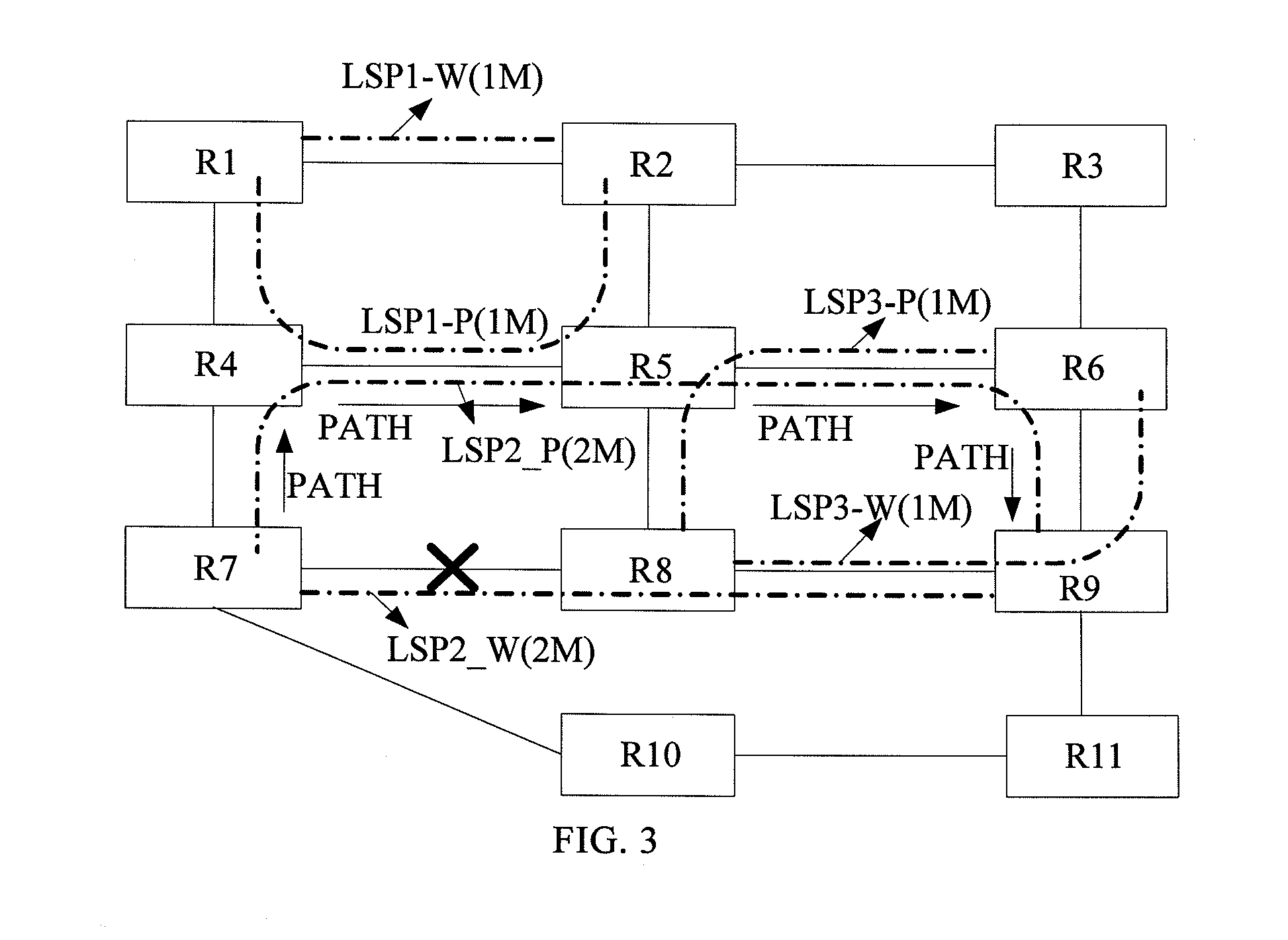Method and network device for realizing shared mesh protection
- Summary
- Abstract
- Description
- Claims
- Application Information
AI Technical Summary
Benefits of technology
Problems solved by technology
Method used
Image
Examples
embodiment 1
[0042]When a fault occurs to a working LSP and protection switching is performed, a reserved service bandwidth corresponding to the working LSP is occupied in a shared protection bandwidth on a link of a protection LSP corresponding to the working LSP. Thereby, in the first embodiment, the present disclosure provides a technical solution to protect against subsequent faults by dynamically increasing the shared protection bandwidth of the protection LSP.
[0043]For example, it is assumed that a fault occurs to link R7-R8 in the network of FIG. 2, as shown in FIG. 3. According to the solution of the first embodiment, a protection switching process implemented after the fault occurs is shown in FIG. 4, which includes the following steps described below.
[0044]In step 401, on a data plane, after node(s) R7 and / or R9 detect that a fault occurs to an LSP2-W through an OAM mechanism, nodes R7 and R9 switch services on LSP2-W to LSP2-P by an automatic protection switching (APS) protocol, so as...
embodiment 2
[0050]After a working LSP is recovered from a fault state to a normal state, services need to be switched from a protection LSP back to the working LSP. A part of a reserved service bandwidth occupied in a link corresponding to the protection LSP is again recovered to a part of a shared protection bandwidth. In the second embodiment, the present disclosure provides a technical solution to protect against subsequent faults by dynamically adjusting the shared protection bandwidth of the protection LSP.
[0051]Specifically, after the protection switching, if the fault in the R7-R8 in FIG. 2 is recovered, the process in FIG. 6 is performed which includes the following steps described below.
[0052]In step 601, on a data plane, after node(s) R7 and / or R9 detect that a fault occurring to an LSP2-W is recovered through an OAM mechanism, nodes R7 and R9 utilize an APS protocol to switch services from an LSP2-P back to the LSP2-W. After the switching is finished, reports are submitted to the con...
embodiment 3
[0058]In the solution provided by the third embodiment of the present disclosure, a current protection path serves as an intermediate transition. When a fault occurs, services are first switched to the current protection path and a new working path is established. Then, the services are switched to the new working path, and the previous protection path is adapted to protect the new working path.
[0059]It is still assumed that a fault occurs to the link R7-R8 in the network shown in FIG. 2, and the protection switching process in the solution according to the third embodiment is implemented as shown in FIG. 7, which includes the following steps.
[0060]In step 701, on a data plane, after node(s) R7 and / or R9 detect that a fault occurs to an LSP2-W through an OAM mechanism, nodes R7 and R9 on the LSP2-W utilize an APS protocol to switch services on the LSP2-W to an LSP2-P, so as to ensure normal operation of the services.
[0061]In step 702, after the switching is finished, the node(s) R7 ...
PUM
 Login to View More
Login to View More Abstract
Description
Claims
Application Information
 Login to View More
Login to View More - R&D
- Intellectual Property
- Life Sciences
- Materials
- Tech Scout
- Unparalleled Data Quality
- Higher Quality Content
- 60% Fewer Hallucinations
Browse by: Latest US Patents, China's latest patents, Technical Efficacy Thesaurus, Application Domain, Technology Topic, Popular Technical Reports.
© 2025 PatSnap. All rights reserved.Legal|Privacy policy|Modern Slavery Act Transparency Statement|Sitemap|About US| Contact US: help@patsnap.com



